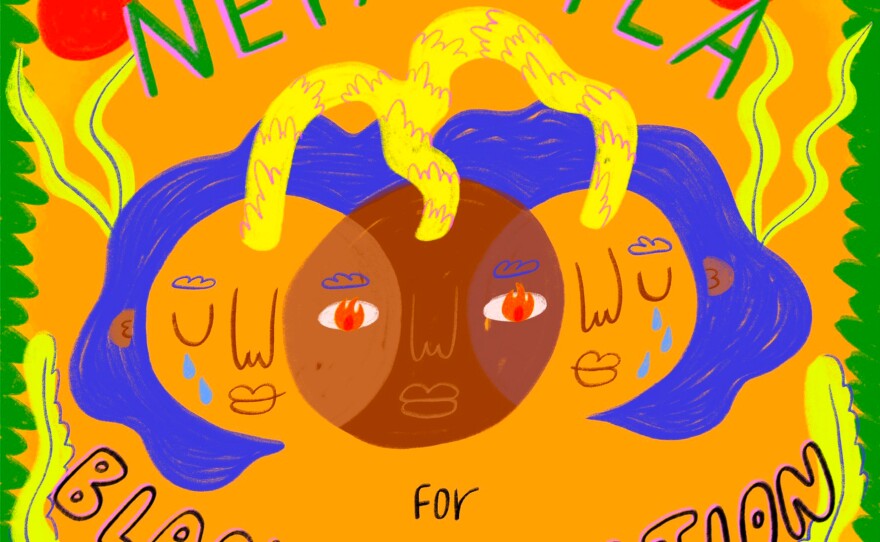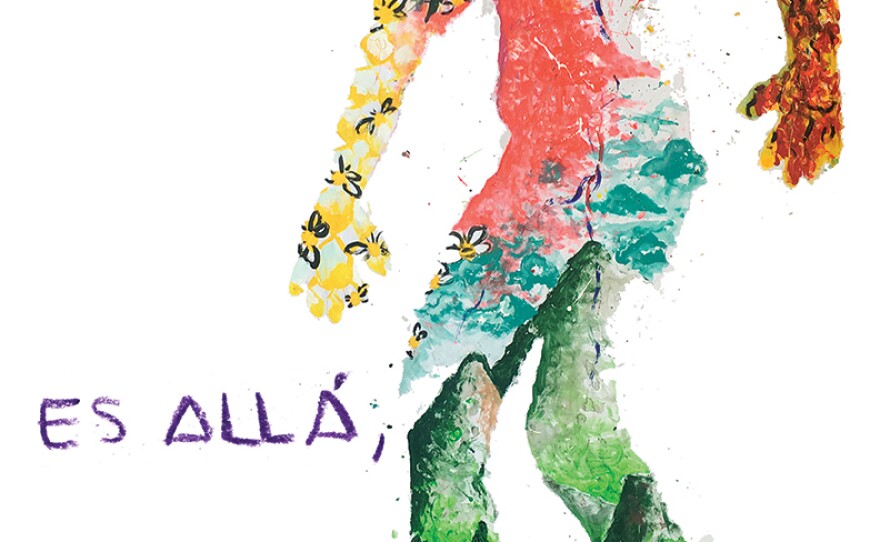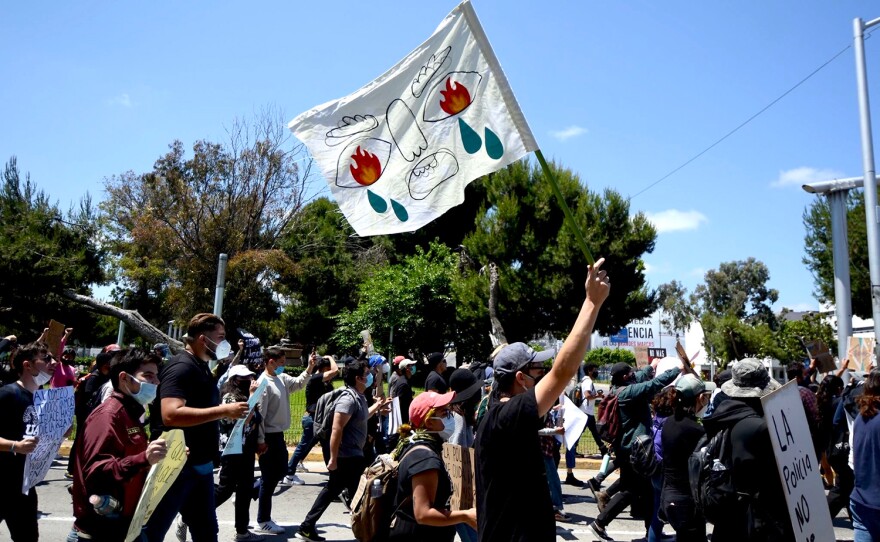Luisa Martínez is a cross-border visual artist and arts educator who provided illustrations for the Art Against State Violence art action event and protest that took place at the Otay Mesa Detention Facility last week. Art works were projected against the walls, and musicians and others performed.
RELATED: Judge Denies Request To Release 34 Detainees Amid Otay Mesa COVID-19 Outbreak
"I really like this concept of radical imagination, so that’s what I try to do with my work — visualize the world that I want to live in," said Martínez. For her, that means using bright colors and bodies close together to suggest connection, and plants to evoke ideas of growth and evolving.

The world she visualizes is one without borders.
"I really like that everybody now is learning about the abolitionist framework. It’s very common for border artists to be like 'borders are dumb,' and we should be a localized region, or share resources and collaborate, but it’s not something that’s very popular, because how do you imagine a world without nations or borders or limits?" Martínez said.
Abolishing borders, Martínez said, is not just about allowing people to cross into another country, but working to build equity and ensure quality of life across borders. "So I think that's always been in my work, this idea of everybody having the right to move, but also the right to, stay, right? If people had resources they could flourish where they were born or where they're from if they wanted to."
As far as justice around detention centers, Martínez hopes her art — and the work of the other social justice artists — will offer other ideas and solutions for cultivating better lives, without the status quo of incarceration.
"How can somebody grow, how can somebody become the best that they can be when they’re locked up in that space, a space that’s dehumanizing? Even prisons. There can be no change, there can be no healing within that type of physical space to begin with," she said.
Martínez thinks art has the capacity to be essential and transformative as well as unifying and mobilizing, and in this way, it can make a difference and foster community — and change.

Right now, Martínez is also mobilizing to support individuals at the Caritas migrant shelter in Tijuana. "I used to work at The Border Nest, a pre-K that served children at the migrant shelter Caritas. And in checking in on Lety recently — the person that runs Caritas — she mentioned they were low on diapers and food," Martínez said. After an eye-opening internet search to check the cost of diapers, she created a graphic, posted it on Instagram, and started collecting donations. She and her partner quickly raised $3,000, well beyond her original goal of $600.
As for work, the pandemic has her in rediscovery mode. “Because of COVID I lost my teaching job," she said of working with a major art institution. She'd originally started teaching through the Tijuana chapter of the Las Fotos Project, a grassroots program that empowers teenage girls through photography, so now she's ready to return to those DIY roots and the energy associated with that kind of work.
But she also has reservations about remote teaching. "COVID makes in-person teaching difficult, and I'm having a really hard time justifying the normalization of online teaching for youth and children. I don't know if I want to be part of that strategy," she said.
Martínez, along with David Peña, also runs the Tijuana Zine Fest, which usually takes place each July. Find more of Martinez's work on her Instagram page.







